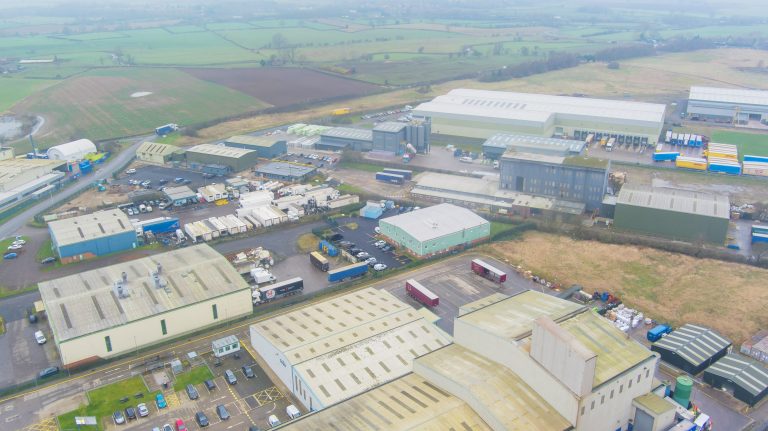MEPC names Sarah as Marketing Manager
Farmers offered 45% ‘pay rise’ for public benefits of new woodland
- A new payment to encourage EWCO applications on low sensitivity land has been introduced, avoiding land most suitable for food production. When planting on low sensitivity land you can now receive £1,100 per hectare.
- A new ‘Nature Recovery – premium’ payment option (£3,300 per hectare) has been added to the Nature Recovery Additional Contribution. This is designed to encourage the planting or natural colonisation of highly biodiverse woodlands next to ancient woodland.
- Uplifts have also been made to some of the other existing additional contributions, with a focus on riparian buffers, flood mitigation and access. For example; payments for flood risk management have doubled from £500 to £1,000 per hectare, and recreational access has increased from £2,200 to £3,700.
- Annual maintenance payments have been raised from £350 to £400 per hectare, per year, for 15 years – recognising that caring for new trees is vital if new woodlands are to flourish.
Call centre company could create 200 Hull jobs thanks to £283k grant
Humber Freeport launches search for region’s rising property star
Humber Freeport has launched a search to find the region’s rising property star, with a ticket for the huge UKREiiF investment showcase up for grabs.
Taking place in Leeds from May 21st to 23rd, UKREiiF is the UK’s leading investment and infrastructure forum. Bringing together the biggest names in property, investment, planning and development, the three-day conference will attract more than 10,000 attendees, with 700 speakers across 30 stages, and over 150 exhibitors. Humber Freeport will be represented at UKREiiF, showcasing the region’s powerful proposition as a magnet for global investment and development. And, as part of its commitment to skills and talent, Humber Freeport has reserved a place for the region’s rising “Prop Star.” The successful candidate will be an early career professional – aged under 25 – making a big impact and forging a successful path in the fields of property, planning, development or investment, in either the private or public sector. Humber Freeport Chair Simon Bird said: “This is a fantastic opportunity for a young property professional to attend the UK’s biggest event in the world of property and investment. “It’s a rare chance to hear from some of the biggest names in the industry, speak to leading exhibitors, develop valuable contacts and gain invaluable insight and profile at this enormously prestigious event. “Humber Freeport is playing a major role in attracting large scale investments to the region and our attendance at UK UKREiiF presents a major opportunity to promote the region and the additional benefits of freeport status. “We’re pleased to have launched this competition to showcase the next generation of property and investment stars and open up a tremendous opportunity for the winning candidate.” To be in with a chance of joining the Humber Freeport team at UKREiiF, entrants must:- Write a short bio about themselves, including their career history and current role.
- Summarise why they’d love to attend UKREiiF and how it will support their personal and professional development.
Wilkin Chapman appoints new Senior Partner
Wake Smith chairman to become High Sheriff of South Yorkshire
Lincoln businesses backed by new initiative to tackle shoplifting
Hull-based firm invests £1m in Bedfordshire training facility
Dalton Industrial Estate gets £129,000 grant to help with 12-month decarbonising study
Yorkshire & Humber manufacturers see mixed start of the year
Yorkshire & Humber manufacturers are seeing a mixed picture as they start the year but confidence is remaining robust despite the UK economy remaining weak overall.
However, Make UK is forecasting growth for manufacturing of just 0.1% in 2024 and 0.8% in 2025 which is weaker growth than the economy overall.
The findings come in the Q4 Manufacturing Outlook survey published by Make UK and business advisory firm BDO. According to the survey, output in Yorkshire & the Humber fell in the first few months of the year. However, looking forward both output and orders are set to pick up substantially in the second quarter of the year in line with the national picture.
However, this picture is not currently being reflected in either investment intentions or recruitment, although this reflects an easing from a strong picture for both indicators last year rather than any negative pattern.
Dawn Huntrod, Region Director for the North at Make UK, said: “After the economic and political shocks of the last few years there is now strong confidence among manufacturers in Yorkshire & the Humber, despite the mixed picture. While growth in the economy is not exactly supercharged, the positive announcements in the Autumn Statement and Budget can at least allow them to plan with more certainty for the future.”
Steve Talbot, Head of Manufacturing at BDO in Yorkshire, added: “Manufacturers across Yorkshire and the Humber have continued to show their ability to overcome wave after wave of challenges, but they cannot continue to do this indefinitely without some more long-term support from the Government.
“The expected increase in output and orders in the latter half of this year is positive and in line with the overall national picture, but whatever happens over the next quarter will be critical to manufacturing businesses in the region.”
Rotherham MP bids to change the law about food traceability
Doncaster Chamber welcomes publication of reports’ potential for area’s businesses
Manufacturing conference puts innovation and sustainability under the spotlight
Innovation and sustainability were key areas of focus at the Greater Lincolnshire and Rutland Manufacturing Conference, when delegates discussed the future of a sector contributing £5.6 billion to the regional economy.
Government plans to foot entire pay bill for SME apprenticeships
Steelmaker secures top accolade for steel going to automotive industry
CITB labeled ‘unfit for purpose’ after publishing its latest annual report
Major, new mixed-use neighbourhood approved in Leeds
Caddick Developments, part of Caddick Group, has received a unanimous resolution to approve a major, new, mixed-use neighbourhood in the South Bank of Leeds.
To mark the planning decision, the 2m sq ft scheme, previously named City One, has been rebranded as South Village. The new name reflects not only its location within one of the UK’s largest brownfield regeneration sites – South Bank, Leeds – but also the development’s design as a contemporary urban village for modern city living.
South Village could provide up to 1,925 homes, 650,000 sq ft of commercial space and significant landscaped areas, all centred around a curated ‘village green’ the size of a professional sports field, and accessible to both residents and local community alike.
Positively received by Leeds City Council’s City Plans Panel, the scheme was praised for its potential, which would “change this part of the city altogether.”
A new place brand has also been developed to accompany the name change, which will be revealed in due course.
Lee Savage, Director at Caddick Developments, said: “South Village will offer a revolution in city-centre living, transforming this strategically located brownfield site into an ambitious and accessible new neighbourhood.
“Our proposals are incredibly exciting, having been designed to provide bold, modern architecture, significant public space and enhanced connectivity between Holbeck and the city centre.
“As we work towards submission of a detailed planning application, we will continue to collaborate closely with key partners and the community to bring forward a vibrant new chapter for this part of the South Bank.”
Johnny Caddick, Caddick Group, said: “We’re delighted to have received the resolution to approve from Leeds planning committee for this transformational new development. South Village is set to redefine contemporary urban living in Leeds, offering all the amenities of a traditional village, while being located in the heart of the city centre.
“Perfectly suited to modern patterns of living and working, South Village has been carefully designed to provide significant public realm and community space, promote active lifestyles and connectivity, and ultimately enable the creation of a dynamic, multi-generational community.”
Construction underway on new further and higher education campus in Skegness
West Yorkshire buses taken back under public control
Plans confirmed for new train maintenance facility in Shipley
“This brand new depot will support rail services while we carry out essential improvements and will also leave long-lasting legacy benefits for the town going forward.”
Rob Warnes, Strategic Development Director for Northern, said: “We’re delighted to announce this investment in our brand new TrainCare Centre for Shipley. As the future home for most of our electric train fleets for West Yorkshire, the new site will bring a wealth of highly-skilled jobs into the region, as well as providing resilience for our network across the North.“It will play a key part in helping us to deliver our plans for the Transpennine route upgrade and beyond.”
As many as 100 highly skilled jobs will be supported at the site, as well as apprenticeships. Councillor Susan Hinchcliffe, Leader of Bradford Council, said: “We welcome this major investment in Shipley, which is another vote of confidence in the district from industry and further positions Bradford as a great place to do business. “The new depot will be an important part of operating rail in the north of England, increasing service reliability for rail service users. A new state-of-the-art facility such as this is one of the many tangible improvements to the rail network we are supporting, delivering greener, more accessible trains across the north.“Increasing employment opportunities and developing skills through regeneration are key priorities for the council, so it’s great to hear that local jobs will be created to facilitate this project in the immediate term, as well as 92 permanent skilled posts being created in the longer term.”






















